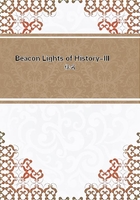
第193章
And here again we are compelled to take issue with Macaulay, not in regard to the great fact that Bacon's inquiries tended to a new revelation of Nature, and by means of the method called induction, by which he sought to establish fixed principles of science that could not be controverted, but in reference to the ends for which he labored. "The aim of Bacon," says Macaulay, "was utility,--fruit; the multiplication of human enjoyments, . . . the mitigation of human sufferings, . . . the prolongation of life by new inventions,"--dotare vitam humanum novis inventis et copiis; "the conquest of Nature,"--dominion over the beasts of the field and the fowls of the air; the application of science to the subjection of the outward world; progress in useful arts,--in those arts which enable us to become strong, comfortable, and rich in houses, shops, fabrics, tools, merchandise, new vegetables, fruits, and animals:
in short, a philosophy which will "not raise us above vulgar wants, but will supply those wants." "And as an acre in Middlesex is worth more than a principality in Utopia, so the smallest practical good is better than any magnificent effort to realize an impossibility;" and "hence the first shoemaker has rendered more substantial service to mankind than all the sages of Greece. All they could do was to fill the world with long beards and long words; whereas Bacon's philosophy has lengthened life, mitigated pain, extinguished disease, built bridges, guided the thunderbolts, lightened the night with the splendor of the day, accelerated motion, annihilated distance, facilitated intercourse; enabled men to descend to the depths of the earth, to traverse the land in cars which whirl without horses, and the ocean in ships which sail against the wind." In other words, it was his aim to stimulate mankind, not to seek unattainable truth, but useful truth; that is, the science which produces railroads, canals, cultivated farms, ships, rich returns for labor, silver and gold from the mines,--all that purchase the joys of material life and fit us for dominion over the world in which we live. Hence anything which will curtail our sufferings and add to our pleasures or our powers, should be sought as the highest good. Geometry is desirable, not as a noble intellectual exercise, but as a handmaid to natural philosophy.
Astronomy is not to assist the mind to lofty contemplation, but to enable mariners to verify degrees of latitude and regulate clocks.
A college is not designed to train and discipline the mind, but to utilize science, and become a school of technology. Greek and Latin exercises are comparatively worthless, and even mathematics, unless they can be converted into practical use. Philosophy, as ordinarily understood,--that is, metaphysics,--is most idle of all, since it does not pertain to mundane wants. Hence the old Grecian philosopher labored in vain; and still more profitless were the disquisitions of the scholastics of the Middle Ages, since they were chiefly used to prop up unintelligible creeds. Theology is not of much account, since it pertains to mysteries we cannot solve. It is not with heaven or hell, or abstract inquiries, or divine certitudes, that we have to do, but the things of earth,--things that advance our material and outward condition. To be rich and comfortable is the end of life,--not meditations on abstract and eternal truth, such as elevate the soul or prepare it for a future and endless life. The certitudes of faith, of love, of friendship, are of small value when compared with the blessings of outward prosperity. Utilitarianism is the true philosophy, for this confines us to the world where we are born to labor, and enables us to make acquisitions which promote our comfort and ease.
The chemist and the manufacturer are our greatest benefactors, for they make for us oils and gases and paints,--things we must have.
The philosophy of Bacon is an immense improvement on all previous systems, since it heralds the jubilee of trades, the millennium of merchants, the schools of thrift, the apostles of physical progress, the pioneers of enterprise,--the Franklins and Stephensons and Tyndalls and Morses of our glorious era. Its watchword is progress. All hail, then, to the electric telegraph and telephones and Thames tunnels and Crystal Palaces and Niagara bridges and railways over the Rocky Mountains! The day of our deliverance is come; the nations are saved; the Brunels and the Fieldses are our victors and leaders! Crown them with Olympic leaves, as the heroes of our great games of life. And thou, OEngland! exalted art thou among the nations,--not for thy Oxfords and Westminsters; not for thy divines and saints and martyrs and poets; not for thy Hookers and Leightons and Cranmers and Miltons and Burkes and Lockes; not for thy Reformation; not for thy struggles for liberty,--but for thy Manchesters and Birminghams, thy Portsmouth shipyards, thy London docks, thy Liverpool warehouses, thy mines of coal and iron, thy countless mechanisms by which thou bringest the wealth of nations into thy banks, and art enabled to buy the toil of foreigners and to raise thy standards on the farthest battlements of India and China. These conquests and acquisitions are real, are practical; machinery over life, the triumph of physical forces, dominion over waves and winds,--these are the great victories which consummate the happiness of man; and these are they which flow from the philosophy which Bacon taught.